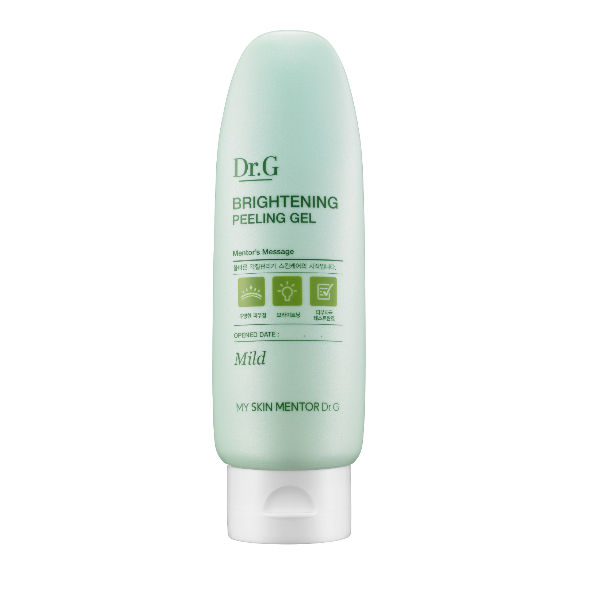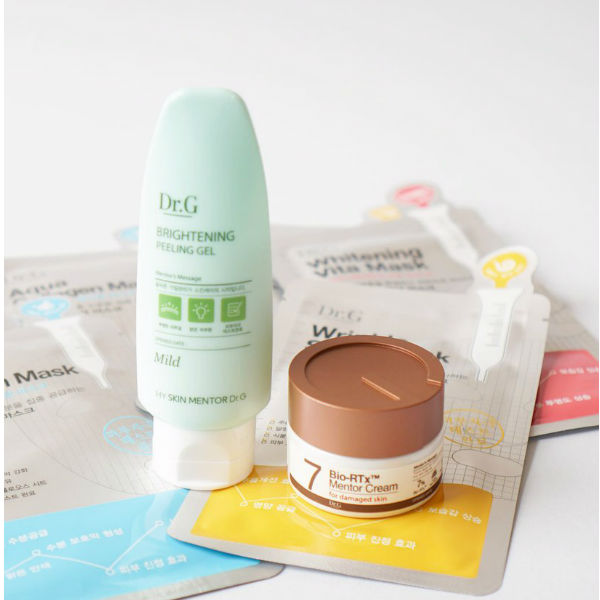Welcome to Soko Secret! Here, we shine a light on the people living in Korea who inspire us. Straight from the streets of Seoul, their approach to beauty and style will impress you. Here, a Korean dermatologist shares his best skin care tips with us!
We had the chance to sit down with Dr. Ahn Gun Young, the CEO of Gowoonsesang Cosmetics and the founder of My Skin Mentor Dr. G., and ask him a collection of burning questions we have about the health of our skin.
Find out why your skin barrier is so important, why you need to exfoliate regularly, and why it’s important to know which combination of 16 different skin types you are.
Since there’s a lot of pollution in Korea, how exactly does pollution affect our skin?
In Korea, fine dust is a huge concern, and it’s known to cause respiratory and skin issues. Heavy metals in car exhaust can cause skin allergies while bigger particles like yellow dust can be abrasive and cause direct damage to your skin.
When your skin comes in contact with pollutants, the number one rule is to thoroughly cleanse. If pollutants have already penetrated skin barrier, which might be the case with small particles like heavy metals, you need skin care products that contain an ingredient that neutralizes the effect of those pollutants. Incorporating these anti-pollutants into your regimen can help reduce the skin damage pollution has caused.
What exactly is the skin barrier and how can you protect it?
Your skin is the final line of defense your body has against harmful external substances. It’s what protects your body, which is why skin barrier function is so important.
Skin barrier is the outermost layer of your skin, which is also called the corneum layer. Dead skin cells form this layer and prevent water loss and entry of allergens and harmful bacteria.
Damaged skin barrier is a cause of many skin conditions, including atopic dermatitis. In the case of atopic dermatitis, damaged skin loses more moisture and also allows more harmful bacteria to enter, meaning your skin becomes infected, dry, and itchy. Once skin barrier is damaged, it starts a vicious cycle.
Does exfoliating help a damaged skin barrier?
Yes, the corneum layer renews itself daily, but if it fails to renew itself in a healthy way, your new skin barrier won’t be able to function properly. By exfoliating regularly, you re-start the renewal process and make sure that it occurs in a healthy manner.
Sensitive skin means that your skin barrier is very damaged. But that doesn’t mean you shouldn’t exfoliate. If you have sensitive skin, chemical peels like AHA’s and BHA’s can irritate your skin, but you can opt for gentler exfoliators like the My Skin Mentor Dr. G Brightening Peeling Gel.
How often should you exfoliate?
The frequency depends on your skin type. Even if you’re using a very gentle exfoliator, like the Brightening Peeling Gel, if you have dry, sensitive and thin skin, exfoliating every day will be too much for your skin. So if you have very sensitive skin, you should exfoliate once or twice a week at maximum. On the other hand, if you have oily, resistant, and thick skin, you can exfoliate every day or every other day using the Brightening Peeling Gel.
Is it possible to make your skin the healthiest it can be without getting regular facials or visiting a dermatologist?
With the right knowledge, you can improve your skin on your own without getting special treatments or seeing a dermatologist, unless of course you’re dealing with skin conditions that require medical attention.
But there is one requirement: You need to know exactly what your skin type is. In the past, skin types were simply divided into oily, dry, sensitive, and normal. But recently, dermatologists have been dividing skin into 16 different skin types.
For instance, if you have dry, sensitive, pigmented and wrinkled skin, your skin type is DSPW. If you use products that are made for that specific DSPW skin type, your skin will get better, for sure. But if you use products designed for the opposite skin type—someone with oily, resistant, non-pigmented and tight skin (ORNT), for instance, your skin will get worse. It doesn’t matter how expensive a product is, if it doesn’t suit your skin type, it won’t work. So if you want to keep your skin healthy, you first have to know exactly what your skin type is and choose products based on that.
What’s the correct order: moisturizer before sunscreen or the other way around?
You should apply moisturizer before sunscreen. The reason is that studies have shown that applying moisturizer before sunscreen allows the latter to apply more evenly and to offer more adequate sun protection.
Do you need to put sunscreen directly on your skin for it to be effective? If so, can you skip moisturizer and put on only sunscreen?
It’s better to put on moisturizer before applying sunscreen for the reasons I said above, but make sure your moisturizer doesn’t include occlusives. Occlusives like Vaseline or mineral oil are good at preventing moisture from leaving your skin, but they also prevent anything you put on top from penetrating the skin. If you use a chemical sunscreen, which needs to be absorbed into the skin to function, applying a moisturizer with occlusives underneath means that your sunscreen won’t be able to give you proper sun protection.
Luckily, most moisturizers either don’t contain occlusives or contain only a negligible amount, so it’s normally not a big issue.
Do you need to wait in between steps for products to absorb?
No, you don’t need to wait if you’re applying products in the order of light to thick consistency. If you were doing the reverse—say, applying something thick like mineral oil first, you’ll need to wait hours for it to absorb before applying toner. But that’s not the usual order of products. If you’re going from light to thick consistency, you don’t need to worry about waiting in between steps.






